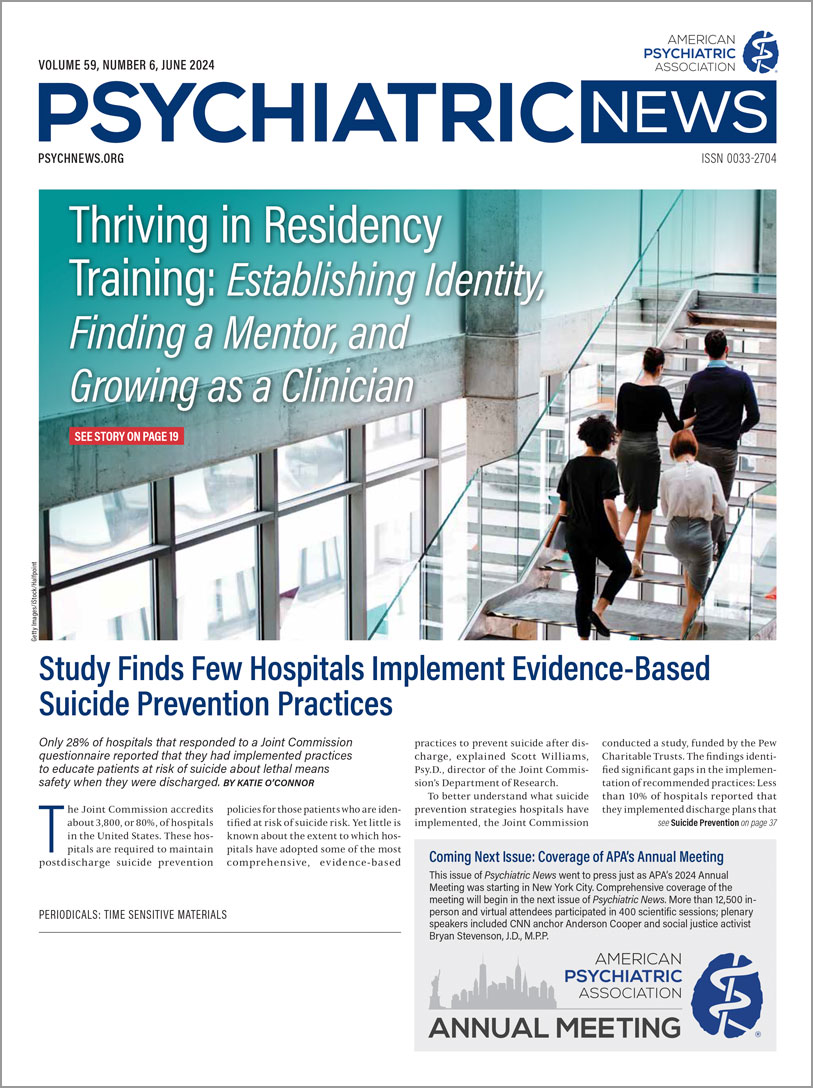DSM-V Compromise Proposed
In the exchange of letters in the July 18 issue between Dr. Robert Spitzer, APA leaders, and the chair and vice chair of the DSM-V Task Force, the opposing parties make arguments that appear to be valid, but they seem to be talking past each other, and in the end both miss the real issue—Dr. Spitzer objects to the fact that the task force's proceedings are to be kept“ confidential,” partly at least on grounds that not doing so would interfere with the open and free exchange of information (that is the very essence of any objective scientific endeavor) between task force members and other interested parties.
The reply that task force and work group members are free, at their discretion, to discuss relevant matters with outsiders, at least when the material is already public or permission has been obtained, fails to invalidate Dr. Spitzer's objection, for as long as anybody has the right to decide by his/her own judgment what is or is not publicly discussable, the exchange of information is no longer assuredly open.
Nonetheless, the task force has legitimate reasons not to hand out specific minutes of their meetings, albeit not on grounds of their (in my opinion indefensible) “confidentiality” agreement, but because minutes may contain, in addition to the objective materials that Dr. Spitzer (and the whole membership) rightly demands to see, information about personalities that may be unnecessarily embarrassing to task force members (for example, somebody holding a particularly unfounded or ludicrous-appearing opinion) and inhibit free and unfettered discussion among task force members.
The real issue, then, is specifically what information is or is not necessary to be shared by the task force with the membership, depending on some objective criteria derived from the very purpose of the task force, and not on the, ultimately arbitrary, judgment of some individual. Since the purpose is to come up with a manual containing scientifically justifiable criteria for the classification of psychiatric disorders, all available data and lines of reasoning from them should be open to public scrutiny and input by and from the entire membership. The task force should serve to coordinate and manage the exchange of information in an orderly, but not arbitrarily selective, manner. What data and reasoning and opinions are offered should be public; who happens to offer those data, reasons, or opinions is irrelevant and should, in the interest of not discouraging free discussion because of potential embarrassment, be indeed“ confidential,” that is, private.



